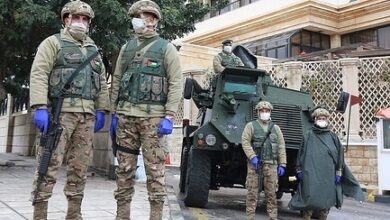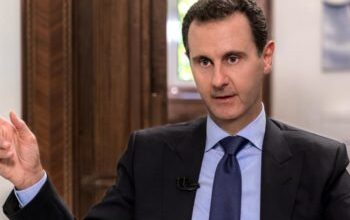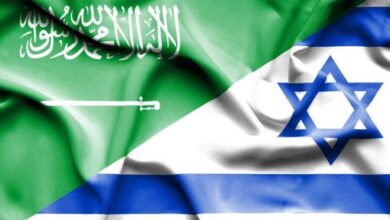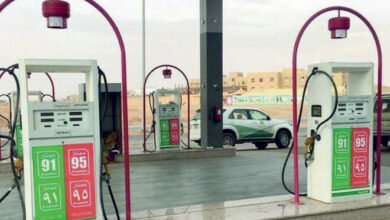Why Saudi Arabia and Friends Fell Out With Qatar
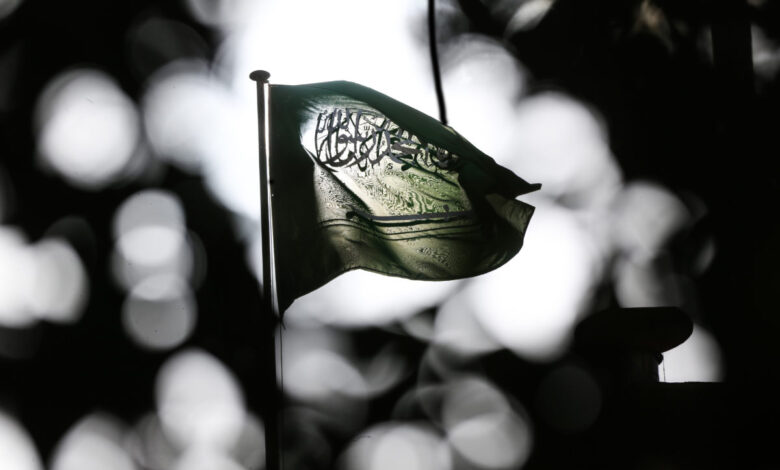
In 2017, Saudi Arabia, the United Arab Emirates, Bahrain and Egypt cut diplomatic ties and transportation links with Qatar, kicking off a regional squabble with broad geopolitical implications. The dispute split the energy-producing region as well as complicating U.S. efforts to isolate Iran. The U.S. push for a resolution showed signs of success at the start of 2021, when the Saudis reopened their land, air and sea borders with Qatar.
1. How did the dispute begin?
The crisis was sparked in 2017 when hackers published a story on Qatar’s news agency quoting Qatari Emir Sheikh Tamim bin Hamad Al Thani as criticizing mounting anti-Iran sentiment after a trip to the region by U.S. President Donald Trump. Qatari officials quickly deleted the comments, called the FBI to help investigate the hack, and appealed for calm as Saudi and UAE newspapers and clerics accused Qatar of trying to undermine efforts to isolate Iran. On June 5 that year, the Saudi- and UAE-led bloc cut diplomatic ties with Qatar. At the time, there were expectations that the rulers would resolve the spat quietly among themselves, as they did a similar dispute three years earlier. Instead, the group issued tough demands, Qatar refused to bend, and the breach hardened.
2. What’s the rift about?
The quartet complains about Qatar’s friendliness with Iran and accuses it of supporting al-Qaeda and Islamic State terrorists, as well as the Muslim Brotherhood, an Islamist organization that several Gulf states have banned and designated as a terrorist group. Qatar’s leaders vehemently deny supporting terrorism and have argued that adhering to the bloc’s demands would infringe the country’s sovereignty.
2. How has the division spread?
Rivalry between Qatar and its neighbors gas extended beyond the Persian Gulf. The countries find themselves on either side of a proxy war in Libya. Qatar has drawn closer to Turkey, which helped it weather the initial shock of the embargo. Meanwhile, Turkey’s ties to other Gulf states have soured; for example, the country has deployed troops to fight against UAE-backed forces in Libya, and it released information implicating Saudi agents in the 2018 murder of Washington Post columnist Jamal Khashoggi in Istanbul.
4. How much damage has been done?
In 2016, the last full year before the embargo, Qatar’s trade with the UAE amounted to $3.5 billion, according to the International Monetary Fund, while trade between Qatar, Saudi Arabia and Egypt totaled about $3.3 billion. That’s vanished. So too have virtually all tourists visiting Qatar from the boycotting countries: 1.3 million people in 2016, including three of the top five visiting nationalities. The decline in intra-Gulf business contributed to a slide in real estate prices and has weighed on economic growth. Still, Qataris argue that the embargo has helped them forge new business ties and foster emerging industries, especially food production, that the country wouldn’t have otherwise developed. It touted these moves while dealing with supply chain disruptions amid the spread of coronavirus.
5. How widespread is the fallout?
The rift has not just hurt Qatar. The boycotting states, particularly the UAE, lost tourists and investors from Qatar and the dispute shook confidence in regional business hub Dubai, which many companies use as a base for their Gulf and wider Middle East operations. In the U.K., Qatari broadcaster BeIN even tried to block a consortium that included Saudi Arabia’s Public Investment Fund from buying soccer club Newcastle United; the sovereign wealth fund ultimately abandoned the bid. More widely, the U.S. voiced concern that the row had complicated security cooperation in a region that hosts major U.S. bases and is a significant exporter and route for global oil supplies. Washington also sees unity among Persian Gulf states as essential to combating the influence of its foe Iran, which U.S. officials view as having benefited from the divisions.
6. Was it all a misunderstanding?
No. The conflict had been brewing for years. With its oil riches and custodianship of Islam’s holiest sites, Saudi Arabia has long seen itself as the natural leader of the Gulf region, if not the entire Middle East. Its strongest competitor is Iran, with whom it has a testy relationship. Since Qatar began to grow wealthy from natural gas exports two decades ago, it has asserted its independence from the Saudis and sought cordial ties with Iran, with whom it shares a gigantic offshore gas field. At stake: almost 50 trillion cubic meters of proven gas reserves, according to Qatar Energy Minister Saad Sherida Al Kaabi. In the meantime, Israel made peace deals with the UAE and Bahrain in 2020, underscoring that it’s now Iran — rather than the Israeli-Palestinian conflict — that’s the focus of the region’s geopolitical disputes.
7. Does Qatar support al-Qaeda and Islamic State?
Some Qataris have provided support to al-Qaeda and its spinoffs, but the country says it has stepped up efforts to clamp down on terrorism financing, particularly since 2017. The U.S. State Department’s 2018 report on terrorism said Qatar has increased cooperation on counter-terrorism efforts and touted a new anti-money laundering law that was ultimately passed the following year. Still, this cooperation followed years of criticism from the U.S. that the country served as a key fund-raising locale for groups like al-Qaeda and the Taliban, particularly through then poorly regulated charities. The U.S. says a longtime government minister provided support for Khalid Sheikh Mohammed, mastermind of the September 11 attacks, who lived in Qatar for several years during the 1990s. And in the disarray of the Syrian revolution, some Qatari support went to rebels who later went on to join Islamic State. Still, the U.S. has levied similar criticisms at other Gulf states.
8. Is the Muslim Brotherhood charge true?
Qatar’s government denies it supports the Muslim Brotherhood, or any political party, but rather says it helps governments and people who may at times be governed by the Muslim Brotherhood, such as Egypt from 2012 to 2013. Qatar’s accusers consider the Brotherhood to be a terrorist movement. Egyptian leader Abdel-Fattah El-Sisi banned the organization and has overseen a crackdown on its supporters after overthrowing an elected president from the group in 2013. Qatar has hosted prominent Brotherhood cleric Yusuf al-Qaradawi since he fled Egypt in 1961, offering him a popular talk show on the state-backed Al Jazeera TV channel.
9. How has Qatar weathered the boycott?
Qatar is one of the world’s wealthiest nations, and its economy has proved resilient. Because the country has opened shipping corridors, sales of gas and oil have continued uninterrupted. Saudi Arabia shocked Qatar by closing its only land border, halting shipments of food. But the smaller country quickly opened alternative trade routes and found substitute suppliers, notably Turkey, Iran and India. Denied overflight rights for Qatar Airways by the boycotting group, it negotiated them with Iran. The country remains on good terms with the U.S., which bases thousands of troops and a regional air operations center there. Qatar, which quit the oil cartel OPEC at the start of 2019, has also been charting a different course from its neighbors on energy policy, with its fortunes tied more closely to natural gas. The country is scheduled to host the FIFA World Cup soccer tournament in 2022.
For more articles like this, please visit us at bloomberg.com


